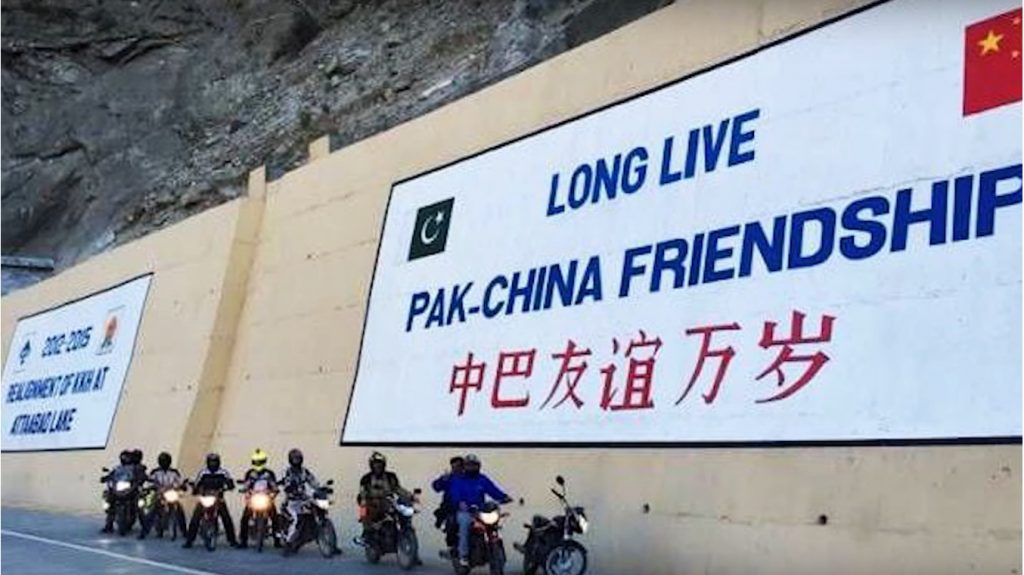ISLAMABAD, Pakistan (ViaNews) - Early this year, the diplomatic relationship between Pakistan may have started off on the wrong foot.
Relations between the two countries might have been tense under the Obama Administration but this year's spat between the two troubled allies appears to be part of a deeper rift, a divide that's only widening under the Trump Administration.
Last year, the Trump administration declared its policy for Afghanistan and Pakistan. In January this year, accused Pakistan of “duplicity” in the war on terror.
Pakistan's Version
Pakistan’s isn't happy with the United States drone campaign against militants in border regions, where government control is limited. Pakistan’s Foreign Ministry
stated that such “unilateral actions are detrimental to the spirit of cooperation between the two countries".
The discord shown in the two governments’ responses is blatant. The Pakistani government issued an extremely sharp rebuke of the US, where the Foreign Office claimed the US directly targeted an Afghan refugee camp. On the other side, the Trump administration’s response to the statements by Pakistan Foreign Office was also uncharacteristically forceful: Historically, the US government has almost never issued a diplomatic response to Pakistan’s criticisms over drone strikes, yet this time around, it flatly rejected the Pakistani claim as “false.”
The gap between Pakistan and the United States seems to be widening, while Pakistan's relations with China are at an all-time high.
The China-Pakistan Economic Corridor
The China-Pakistan Economic Corridor (CPEC) is a sequence of infrastructure projects throughout Pakistan, a US$62 billion investment to swiftly modernize Pakistani infrastructure including transportation networks, energy projects, and special economic zones.
[caption id="attachment_5114" align="aligncenter" width="696"]

Gwadar Port is the largest Deep Sea Port in the World. Pakistan has agreed on a collaboration with China to turn Gwadar into a full-scale commercial port, being a key element of the greater China-Pakistan Economic Corridor (CPEC). Photo by: Express.[/caption]
The China-Pakistan Economic Corridor (CPEC) is also paving way for educational excellence in China and Pakistan. Multiple university collaborations and research think-tanks being established. CPEC is providing opportunities to study abroad and research, for students of both countries.
Pakistan looking for stronger ties closer to home
In the last decade, the US has warmed up to India, while continuing to criticize Pakistan over its involvement in Afghanistan. Pakistani security and political officials are deeply distrustful of growing US closeness with India, viewing the collaboration as at odds with Pakistan’s own national security interests.
Over time, the decision-makers in Pakistan have begun to believe that previous attempts to appease the United States at all costs have only resulted in Pakistan losing out and that Pakistan’s efforts would have been better spent concentrating on improving relations with hostile neighbors such as India and Afghanistan – independent of any US involvement.
When seen from a different angle, there is a growing sense within Pakistani people that preserving relations with the US has only worked against Pakistan’s own interests, a feeling which has generated significant antipathy towards the US.
China's Influence on the Pakistani-US relations
The Pakistani's sentiment of antipathy towards the US is compounded by China’s evolving relationship with Pakistan. The US influence over Pakistan has weakened and the Chinese investment is pouring into Pakistan.
[caption id="attachment_5116" align="aligncenter" width="696"]

"Long live Pak-China Friendship" at the Gwadar Port is turning into a full-scale commercial port and a key element of the greater China-Pakistan Economic Corridor (CPEC). Photo by: Express.[/caption]
Through the CPEC, China has invested over US$60 billion in the development of Pakistan’s infrastructure. This initiative will lead to massive, unprecedented levels of commercialization within Pakistan, and is cementing ties between the two states. China has also come to Pakistan’s defense in the wake of US threats to cut military aid.
This fairly huge investment by the Chinese government has also had the unintended effect of providing a sense of internal and external security. The Pakistani military believes that both the United States and India would hesitate to undermine Pakistan’s sovereignty by engaging in purported counterterrorism operations, once Chinese investment becomes entrenched in the country. This is especially true in the border or restive territories such as in Kashmir, Khyber Pakhtunkhwa, and Balochistan.
 Gwadar Port is the largest Deep Sea Port in the World. Pakistan has agreed on a collaboration with China to turn Gwadar into a full-scale commercial port, being a key element of the greater China-Pakistan Economic Corridor (CPEC). Photo by: Express.[/caption]
The China-Pakistan Economic Corridor (CPEC) is also paving way for educational excellence in China and Pakistan. Multiple university collaborations and research think-tanks being established. CPEC is providing opportunities to study abroad and research, for students of both countries.
Gwadar Port is the largest Deep Sea Port in the World. Pakistan has agreed on a collaboration with China to turn Gwadar into a full-scale commercial port, being a key element of the greater China-Pakistan Economic Corridor (CPEC). Photo by: Express.[/caption]
The China-Pakistan Economic Corridor (CPEC) is also paving way for educational excellence in China and Pakistan. Multiple university collaborations and research think-tanks being established. CPEC is providing opportunities to study abroad and research, for students of both countries.
 "Long live Pak-China Friendship" at the Gwadar Port is turning into a full-scale commercial port and a key element of the greater China-Pakistan Economic Corridor (CPEC). Photo by: Express.[/caption]
Through the CPEC, China has invested over US$60 billion in the development of Pakistan’s infrastructure. This initiative will lead to massive, unprecedented levels of commercialization within Pakistan, and is cementing ties between the two states. China has also come to Pakistan’s defense in the wake of US threats to cut military aid.
This fairly huge investment by the Chinese government has also had the unintended effect of providing a sense of internal and external security. The Pakistani military believes that both the United States and India would hesitate to undermine Pakistan’s sovereignty by engaging in purported counterterrorism operations, once Chinese investment becomes entrenched in the country. This is especially true in the border or restive territories such as in Kashmir, Khyber Pakhtunkhwa, and Balochistan.
"Long live Pak-China Friendship" at the Gwadar Port is turning into a full-scale commercial port and a key element of the greater China-Pakistan Economic Corridor (CPEC). Photo by: Express.[/caption]
Through the CPEC, China has invested over US$60 billion in the development of Pakistan’s infrastructure. This initiative will lead to massive, unprecedented levels of commercialization within Pakistan, and is cementing ties between the two states. China has also come to Pakistan’s defense in the wake of US threats to cut military aid.
This fairly huge investment by the Chinese government has also had the unintended effect of providing a sense of internal and external security. The Pakistani military believes that both the United States and India would hesitate to undermine Pakistan’s sovereignty by engaging in purported counterterrorism operations, once Chinese investment becomes entrenched in the country. This is especially true in the border or restive territories such as in Kashmir, Khyber Pakhtunkhwa, and Balochistan.
